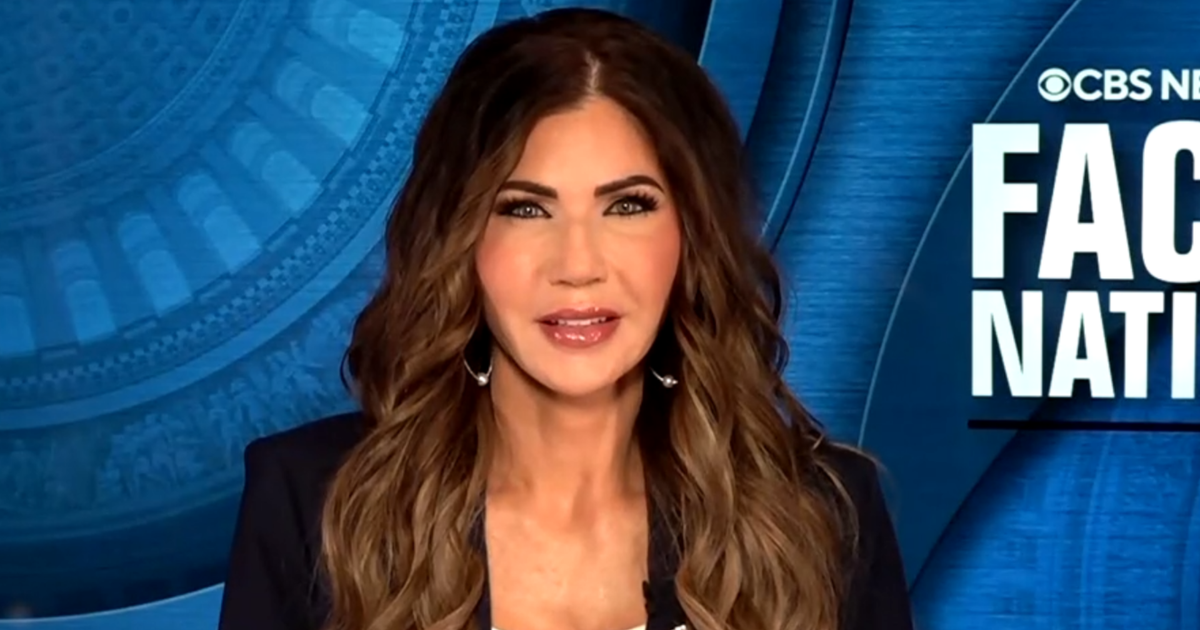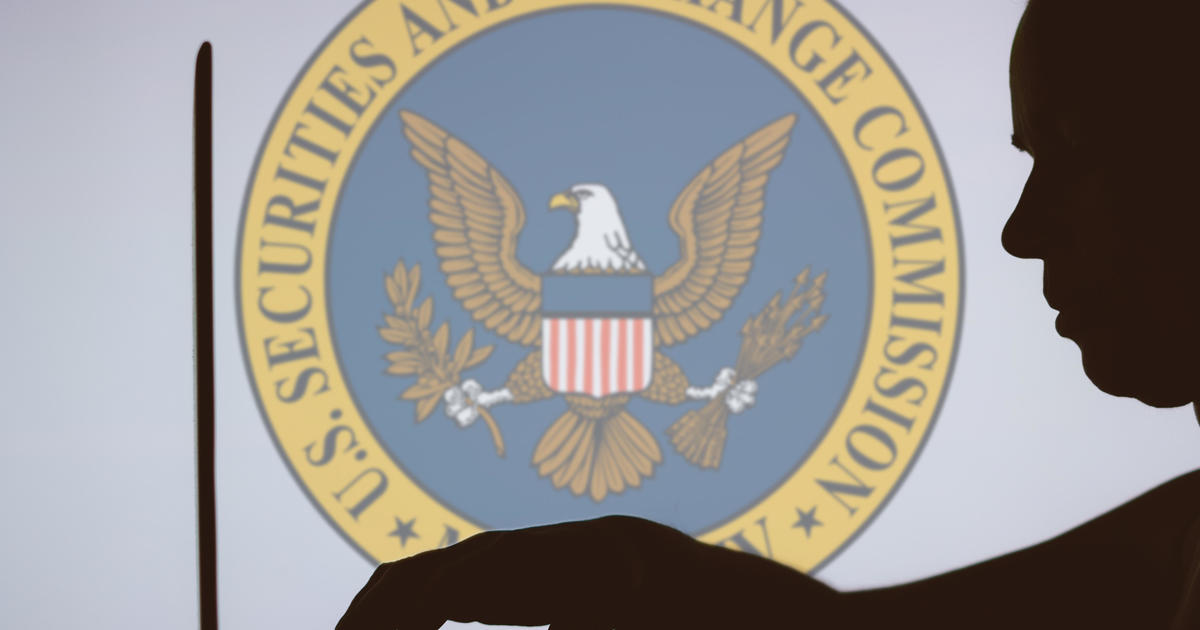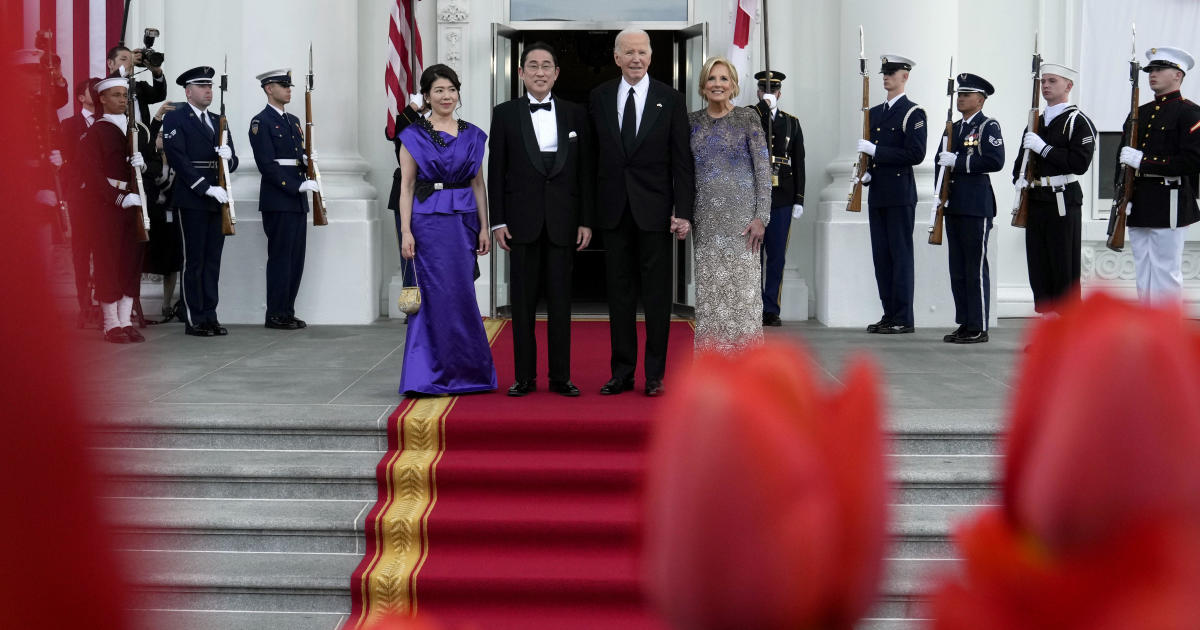President Trump says era of unfair trade deals "are over"
President Donald Trump says the days of the U.S. being taken advantage of in trade deals "are over" in a harshly worded statement responding to Canadian Prime Minister Justin Trudeau's criticism of new steel and aluminum tariffs.
Trump is levying tariffs on the metals, starting Friday, on imports from Canada, Mexico and the European Union. His administration is also renegotiating the North American Free Trade Agreement.
The White House has said the U.S. tariffs -- 25 percent duties on steel and 10 percent on aluminum shipments from Canada, EU member states and Mexico -- are necessary to safeguard U.S. national security.
"After a period of cooling, the Cold War for Trade entered a new phase of escalation this week with the Trump Administration reasserting tariffs on trans-Atlantic partners for steel, and China over intellectual property," Benjamin Salisbury and Cory Palmer of B. Riley FBR wrote in a research report.
They added that the conflict could be "a longer drawn-out process characterized by serious but limited sector-specific skirmishes."
In announcing his country's response, Canadian Prime Minister Justin Trudeau said it was "inconceivable" that Canada "could be considered a national security threat to the United States," noting that U.S. fighter planes and tanks contain Canadian steel.
Trump said of NAFTA, "Earlier today, this message was conveyed to Prime Minister Justin Trudeau of Canada: The United State (sic) will agree to a fair deal, or there will be no deal at all."
Trudeau is calling the tariffs "totally unacceptable," suggested they would alter the relationship between the two countries, and has announced plans to levy tariffs on $12.8 billion in U.S. exports.
Ryan breaks from Trump
House Speaker Paul Ryan says he disagrees with the Trump administration's decision to impose tariffs on aluminum and steel imports from Canada, Mexico, and the European Union.
Ryan was among several leading Republicans in Congress critical of Thursday's action.
Ryan says that the administration's decision "targets America's allies when we should be working with them to address the unfair trading practices of countries like China."
Ryan says there are better ways than tariffs to help American workers and consumers. He does not specify those measures, but says he plans to work with Trump on "those better options."
Macron: "Illegal" tariffs
French President Emmanuel Macron is calling the U.S. decision to levy tariffs on the European Union "illegal" and a "mistake."
Macron said that he deplores the U.S. action and that he plans to speak with U.S. President Donald Trump later Thursday telling him just that.
The French president said the tariff move does not in line with international trade law that the United States, France and Europe have subscribed to. He stressed that there would be a European response.
Macron, who was the first foreign leader invited by Trump to a state visit, said the U.S. president's decision is a mistake because it creates economic and commercial nationalism.
He ominously recalled the pre-World War II period saying, "Economic nationalism leads to war. This is exactly what happened in the 1930s."
World Trade Organization
The European Union says it plans to bring its case against new U.S. tariffs on steel and aluminum to the World Trade Organization on Friday.
If that happens, the 28-nation EU would join China and India in triggering the WTO's dispute settlement mechanism over the American trade penalties.
Turning to the WTO would give the EU a second response to the tariffs. It's already prepared $1.6 billion in retaliation against U.S. goods including steel, orange juice, motorcycles and bourbon whiskey.
WTO proceedings could open the door to further penalties and increase pressure on Washington, though the process traditionally takes many months — and in some cases, years.
WTO: "Very real concern"
The head of the World Trade Organization is expressing "very real concern" about rising trade tensions and the risk of escalation.
The comments from Director-General Roberto Azevedo come in the wake of U.S. trade penalties on imported steel and aluminum.
But he says the global trading system "was built to resolve these problems in a way that prevents further escalation."
Investor response
Investors are responding to the White House's tariffs on steel and aluminum imports by selling U.S. companies that rely on the metals and bidding up domestic producers.
Century Aluminum is up 3.6 percent and U.S. Steel 2.3 percent.
Deere & Co., which makes farming equipment, is down 2.6 percent, and construction equipment maker Caterpillar is off 1.5 percent as investors anticipate that manufacturing costs could rise.
Other losers among U.S. companies are consumer products makers, which could be hurt by tariffs that might be imposed by the European Union on products including peanut butter and orange juice.
Conservative opposition
The conservative network backed by the wealthy brothers Charles and David Koch is coming out in opposition to President Donald Trump's decision to impose tariffs on steel and aluminum imports from U.S. allies.
Freedom Partners Chamber of Commerce and Americans for Prosperity say the tariffs are tax increases on all Americans and are warning that the penalties will undermine the nation's economy and low unemployment rates.
Ontario: Trump is a "bully"
Ontario's premier is calling President Donald Trump a "bully" and says the new U.S. tariffs on steel and aluminum are "ridiculous and unwarranted."
Kathleen Wynne says Canada has to send a signal to Trump that Canada "will not be your doormat."
She says the only way to stand up to a bully is to stand up and push back. She's urging Canada take a swift and sharp retaliatory response.
Wynne says Trump's actions will hurt jobs in the United States and Canada.
The premier has a week left in her election campaign.
Germany: Tariffs are "unlawful"
The German government has rejected the tariffs on steel and aluminum announced by the Trump administration as "unlawful."
A spokesman for German Chancellor Angela Merkel refers in a statement to "the danger of spirals of escalations" that could hurt everyone.
Germany's foreign minister is condemning the U.S. tariffs on steel and aluminum, and he says the European Union "is ready to react accordingly with counter measure."
Heiko Maas has the support of German business associations that are rejecting the new trade penalties from the Trump administration.
The German Association of the Automotive Industry VDA calls the U.S. decision "incomprehensible."
An a mechanical engineering industry group says Washington's action is "a fatal signal for trans-Atlantic trade."
European Union: "Unacceptable"
The European Union stands ready to retaliate immediately following new U.S. tariffs on steel and aluminum.
European Commission President Jean-Claude Juncker says "it's totally unacceptable that a country is imposing unilateral measures when it comes to world trade."
He says to expect "counterbalancing measures" from Europe soon.
German trade group: "A black hour"
What does Germany's BGA association of foreign and wholesale traders think of the new U.S. tariffs on European Union steel and aluminum?
"A black hour for the trans-Atlantic relations."
The group says in a statement that "we deeply regret this unreasonable attitude by President Trump and its consequences."
It's calling on the EU to respond in accordance with the law in order "to not further weaken global trade."
A looming trade war?
U.S. businesses in Europe are dismayed by President Donald Trump's decision to impose tariffs on steel and aluminum imports from the European Union.
They're worried it could spark a trade war.
Susan Danger is CEO of the American Chamber of Commerce to the EU. She says U.S. companies in Europe are opposed to Washington's trade move.
She says American businesses in Europe "are very concerned by the damage a tit-for-tat dispute would cause to the trans-Atlantic economy and its impact on jobs, investment and security across the Atlantic."
France says it's working with Germany and European authorities for a "firm and united response" to new U.S. tariffs on European steel and aluminum.
An adviser to French President Emmanuel Macron tells The Associated Press that France is "extremely mobilized" for a response. But the adviser isn't elaborating.
Macron argued against the tariffs when he met with Trump in Washington last month. Macron gave an impassioned speech on Wednesday against trade penalties and said they hurt jobs and consumers
EU: "A bad day"
The European Union's top trade official says it is "a bad day for world trade" after the U.S. went ahead with tariffs on imports of EU steel and aluminum.
Trade Commission Cecilia Malmstrom says the EU "did everything to avoid this outcome."
She says that during talks with Washington, "the U.S. has sought to use the threat of trade restrictions as leverage to obtain concessions from the EU."
And here's how Malmstrom puts it: "This is not the way we do business, and certainly not between long-standing partners, friends and allies."
She says the EU will now impose "rebalancing measures" on U.S. products.
Britain: "Deeply disappointed"
Britain says it's "deeply disappointed" by the U.S. decision to impose tariffs on steel and aluminum from Canada, Mexico and the European Union.
The government says "the U.K. and other European Union countries are close allies of the U.S. and should be permanently and fully exempted" from the tariffs.
In a statement, the British government says it has "made clear to the U.S. government at the highest levels the importance of U.K. steel and aluminum to its businesses and defense projects." It says it will work with the EU and U.S. administration to achieve a permanent exemption.
Britain voted in 2016 to leave the EU but remains a member until the official exit day of March 29, 2019.
Mexico plans tariffs on U.S. products
Mexico says it will answer tariffs on steel and aluminum announced by the Trump administration with duties of its own on a variety of U.S. products.
Mexico says it will impose tariffs on U.S. imports including pork bellies, apples, grapes, cheeses and flat steel among other things.
A statement from Mexico's economy ministry says the U.S. use of a national security justification is improper and that the tariffs affect strategic sectors for North America, including automotive, aerospace and electronics.
Trump announced the tariffs in March, but gave exemptions to the European Union, Mexico and Canada.
EU: Countermeasures
That's the reaction from the European Commission's president to the U.S. decision to impose tariffs on steel and aluminum imports from the European Union.
Jean-Claude Juncker says the EU will respond with countermeasures.
He says the U.S. action leaves the EU with no choice but to proceed with a case in the World Trade Organization. He says the EU will impose additional duties on a number of imports from the U.S.



